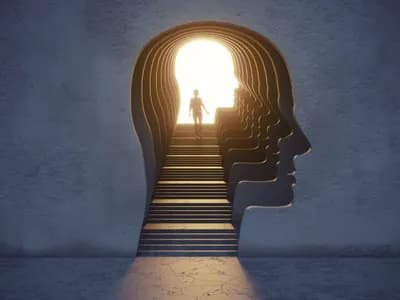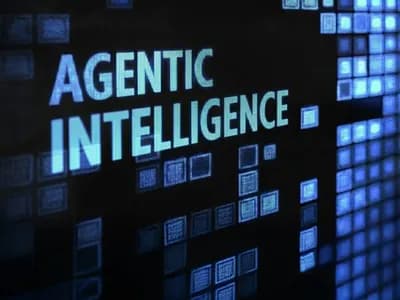Artificial Intelligence has reshaped nearly every conversation in tech. From the boardroom to the sprint planning table, every leader is asking the same question: How will AI change the way we build, lead, and innovate?
At Oceans Code Experts, I’ve had a front-row seat to that transformation. During our recent Neat Intelligence Live Podcast at Oceans Merge 2025 in Punta Cana, four industry leaders joined us, along with a few glasses of fine Dominican rum, to talk candidly about how AI is changing everything, including us.
Their insights cut through the hype. They reminded me of something I’ve believed for years:
“AI isn’t replacing developers, it’s amplifying them. But only when humans know how to lead the machine.”
Let’s unpack what that means for CTOs, VPs of Engineering, and tech leaders navigating this new reality.
AI Is a Multiplier, of Both Strengths and Weaknesses
As one panelist put it, “AI amplifies your strengths, and your dysfunctions.”
That statement captures the core truth about how we should approach automation. The smartest engineering leaders today don’t see AI as a shortcut; they see it as a force multiplier for great talent.
AI can handle the repetitive, mechanical parts of development: code completion, testing, refactoring. But what it still lacks, and what humans uniquely bring, is context.
AI doesn’t know your production environment, your customer’s domain, or your company’s unwritten rules. It can’t see how one change in the codebase ripples across systems, compliance frameworks, or user experiences.
That’s why experienced developers aren’t going away, they’re becoming more valuable.
Because when everyone has access to the same AI tools, differentiation comes from judgment, creativity, and the ability to think critically about context.
The “AI-Ready Workforce” Starts with the Right Culture
Every organization is talking about reskilling, but few are doing it effectively.
From our conversation, one thing was clear: building an AI-ready workforce isn’t just about tools, it’s about mindset.
Companies that thrive in the AI era share three traits:
- Curiosity over complacency. They encourage developers to experiment, challenge outputs, and think beyond the model.
- Zero-trust approach to automation. Engineers validate everything. Blind trust in AI leads to “brain rot.”
- A culture of learning and adaptability. They invest in prompt engineering, domain training, and collaborative experimentation.
As one panelist said, “AI won’t take your job. But someone who knows how to use AI effectively will.”
That’s the shift we’re seeing in the best nearshore teams across Latin America: not fear of automation, but fluency with it. These teams are blending technical mastery with the adaptability that AI demands.
Nearshore Talent: The Hidden Advantage in the AI Revolution
The conversation also turned to what makes Latin American developers uniquely equipped for this new era of AI-powered engineering.
Here’s what we’ve seen firsthand at Oceans:
- Agility and adaptability. Latin American engineers have shown an incredible ability to evolve with technology. From data science to full-stack and now AI, they don’t wait for change, they ride its wave.
- Cultural alignment. Shared business values and real-time collaboration with U.S. teams mean less friction and faster outcomes.
- Strong educational roots. Many countries, Argentina, Colombia, Costa Rica, are producing highly analytical, mathematically trained developers, particularly in data and AI disciplines.
- Time zone proximity. Collaboration thrives when your nearshore team works while you do. Real-time problem solving isn’t just convenient, it’s critical when building high-performance AI systems.
In short, Latin American talent is AI-ready, not because of tools, but because of mindset.
They’re collaborative, creative, and deeply aware of the human element behind great technology.
Why Context, and Conscience, Still Belong to Humans
One of the most powerful parts of our discussion centered around the idea that AI has no soul.
It has no conscience, no empathy, no moral filter. It can optimize code, but it can’t weigh ethical trade-offs or understand user emotion.
That’s where human leadership remains indispensable.
As engineering leaders, we’re not just optimizing for efficiency. We’re responsible for impact.
Yes, AI is fast. But speed without understanding leads to fragile systems and flawed outcomes.
Our role is to ensure technology amplifies our values, not replaces them.
In software development, that means:
- Maintaining human oversight. Validate, question, and refine AI outputs.
- Teaching teams to lead with curiosity. The best coders aren’t the ones who ask AI for answers, they’re the ones who ask better questions.
- Preserving creative imperfection. In a world obsessed with flawless output, the small “human errors” often lead to innovation.
Preparing for the Fifth Industrial Revolution
The panel called it the “Fifth Revolution”, a world where AI doesn’t just assist us but reshapes how society functions.
Some industries will adapt quickly. Others, especially regulated sectors like healthcare and finance, will move slower.
But make no mistake: the revolution is already here.
The winners will be those who move deliberately and intelligently, organizations that invest in:
- AI literacy for every role, not just developers.
- Integrated workflows where AI assists but doesn’t dictate.
- Cross-functional collaboration that connects engineers, data scientists, and domain experts.
At Oceans Code Experts, we see this shift every day.
U.S. companies aren’t just hiring developers anymore, they’re building AI-augmented engineering ecosystems.
And the best way to do that is by blending North American leadership with nearshore innovation.
The Takeaway: Stay Human, Stay Ahead
AI is here to stay, but it’s humans who will decide what it becomes.
As a CEO, my biggest learning from that conversation was this:
The future of work isn’t man versus machine, it’s man with machine.
Success in this new landscape isn’t about who codes faster, it’s about who thinks deeper, adapts quicker, and builds with more purpose.
That’s where nearshore partnerships shine: real people, real context, and real collaboration, driven by curiosity, not fear.
Ready to See What Human + AI Collaboration Looks Like?
At Oceans Code Experts, we help U.S. tech organizations build and scale nearshore engineering teams that are not only AI-fluent but human-smart, developers who bring creativity, adaptability, and strategic thinking to every project.
Start with a 20-hour risk-free trial and experience the power of elite Latin American engineers seamlessly integrated into your U.S. team.
Watch the full Neat Intelligence Live: “4 Experts, 3 Rums, and the Truth About AI” episode from Oceans Merge 2025 for deeper insights into how AI is reshaping software engineering, and why the human edge still wins.












